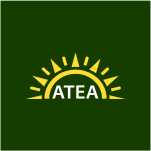Atea Q4 2021 Earnings Report
Key Takeaways
Atea Pharmaceuticals reported fourth quarter collaboration revenue of $192.2 million and net income of $117.1 million. The company is advancing three Phase 2 programs in COVID-19, HCV, and dengue fever.
Priority is to develop a combination regimen with bemnifosbuvir and a protease inhibitor for COVID-19.
Initiating Phase 2 combination clinical trial of bemnifosbuvir and ruzasvir (RZR) as potential best-in-class pan genotypic regimen for hepatitis C virus (HCV) in 2H 2022.
Advancing AT-752 as a potential first antiviral treatment for dengue fever in Phase 2 program in 1H 2022.
Strategic collaboration with Roche was terminated, giving Atea full rights to continue clinical development and commercialization of bemnifosbuvir worldwide.
Forward Guidance
Atea anticipates several important milestones and data readouts from its programs during the year and has the financial strength and a seasoned management team to advance these programs through key clinical and regulatory inflection points.
Positive Outlook
- Meaningful progress advancing three Phase 2 programs in COVID-19, HCV and dengue fever during 2022
- Combination therapies will be needed to treat broader patient populations, as new COVID-19 variants occur, and viral drug resistance will likely emerge to protease inhibitor monotherapy.
- Combination of RZR and bemnifosbuvir has the potential to be a best-in-class pan-genotypic combination regimen to help fight the increase in HCV infections caused by the opioid crisis, IV drug use and HCV reinfection
- Making significant progress advancing AT-752 as a potential first antiviral treatment for dengue fever, the most prevalent mosquito-borne viral disease with a large global disease burden.
- Initiate a Phase 2 clinical trial in dengue endemic countries and a human challenge study in the U.S. during the first half of 2022 and expects to report results from these studies in late 2022.
Challenges Ahead
- Uncertainty around and costs associated with the development of AT-752 as a potential treatment for dengue and combination product candidates including bemnifosbuvir for the potential treatment for COVID-19 and HCV
Historical Earnings Impact
Analyze how earnings announcements historically affect stock price performance
